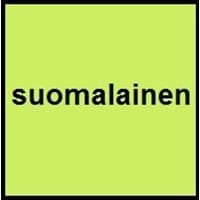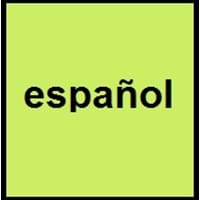Countries
European Union, Finland
Andora, Argentina, Aruba, Australia, Belize, Bolivia, Brazil, Canada, Chile, Colombia, Costa Rica, Cuba, Dominican Republic, Ecuador, El Salvador, Equatorial Guinea, France, Gibraltar, Guatemala, Honduras, Jamaica, Latvia, Luxembourg, Mexico, Morocco, Namibia, Netherlands Antilles, New Zealand, Nicaragua, Norway, Panama, Paraguay, Peru, Philippines, Puerto Rico, Russia, Spain, Sweden, Switzerland, Trinidad and Tobago, Turkey, United Kingdom, United States of America, Uruguay, Venezuela, Western Sahara
National Language
Estonia, Finland, Norway, Russia, Sweden
Spain
Second Language
Estonia
Andora, Aruba, Australia, Austria, Belgium, Belize, Brazil, Bulgaria, Canada, Denmark, France, Germany, Ireland, Israel, Italy, Jamaica, Luxembourg, Morocco, Netherlands, Netherlands Antilles, New Zealand, Philippines, Poland, Portugal, Romania, Russia, Slovenia, Switzerland, Trinidad and Tobago, Turkey, United Kingdom, United States of America, US Virgin Islands
Speaking Continents
Asia, Europe
Africa, Asia, Europe, North America, South America
Minority Language
Republic of Karelia, Russian Federation, Sweden
Brazil, France, Germany, Italy, Japan, Morocco, United Kingdom
Regulated By
Institute for the Languages of Finland
Asociación de Academias de la Lengua Española
Interesting Facts
- Finnish language has adopted many words from Iranian, Turkic, Baltic, Germanic and Slavic languages.
- In Finnish language, there are no articles or grammatical gender.
- One of the world's most phonetic language is Spanish.
- Up to the 18th century, Spanish was diplomatic language.
Similar To
Estonian and Livonian Languages
French Language
Derived From
Not Available
Latin
Alphabets in
Finnish-Alphabets.jpg#200
Spanish-Alphabets.jpg#200
Writing Direction
Left-To-Right, Horizontal
Left-To-Right, Horizontal
How Are You?
Mitä kuuluu?
Cómo estás?
Good Night
hyvää yötä
Buenas Noches
Good Evening
Hyvää iltaa
Bonne soirée
Good Afternoon
Hyvää iltapäivää
Buenas Tardes
Good Morning
Hyvää huomenta
Buenos Días
I Love You
Minä rakastan sinua
Te Quiero
Excuse Me
Anteeksi
Discúlpeme
Dialect 1
Colloquial Finnish
Mexican Spanish
Where They Speak
Finland
Mexico
How Many People Speak
Not Available
Dialect 2
Rauma
Cuban Spanish
Where They Speak
Finland, Rauma
Cuba
How Many People Speak
Not Available
Dialect 3
Meänkieli
Puerto Rican Spanish
Where They Speak
Finland, Sweden
Puerto Rico
Speaking Population
Not Available
Native Name
suomi / suomen kieli
Español
Alternative Names
Suomi
Castellano, Castilian, Español
French Name
finnois
espagnol; castillan
German Name
Finnisch
Spanisch
Pronunciation
[ˈsuomi]
[espaˈɲol], [kasteˈʎano]
Ethnicity
ethnic Finns
Not Available
Language Family
Uralic Family
Indo-European Family
Subgroup
Finno-Ugric
Romance
Branch
Finnic
Not Available
Early Forms
Proto-Finnic language
Old Spanish and Spanish
Standard Forms
standard Finnish
Pluricentric Standard Spanish
Language Position
Not Available
Signed Forms
Signed Finnish
Signed Spanish
Scope
Individual
Individual
ISO 639 6
Not Available
Not Available
Glottocode
finn1318
stan1288
Linguasphere
No data available
51-AAA-b
Language Type
Living
Living
Language Linguistic Typology
Subject-Verb-Object
Subject-Object-Verb
Language Morphological Typology
Agglutinative, Synthetic
Fusional, Synthetic
Finnish and Spanish Greetings
People around the world use different languages to interact with each other. Even if we cannot communicate fluently in any language, it will always be beneficial to know about some of the common greetings or phrases from that language. This is where Finnish and Spanish greetings helps you to understand basic phrases in Finnish and Spanish language. Finnish word for "Hello" is Moi or Spanish word for "Thank You" is Gracias. Find more of such common Finnish Greetings and Spanish Greetings. These greetings will help you to be more confident when conversing with natives that speak these languages.
Finnish vs Spanish Difficulty
The Finnish vs Spanish difficulty level basically depends on the number of Finnish Alphabets and Spanish Alphabets. Also the number of vowels and consonants in the language plays an important role in deciding the difficulty level of that language. The important points to be considered when we compare Finnish and Spanish are the origin, speaking countries, language family, different greetings, speaking population of these languages. Want to know in Finnish and Spanish, which language is harder to learn? Time required to learn Finnish is 44 weeks while to learn Spanish time required is 24 weeks.





